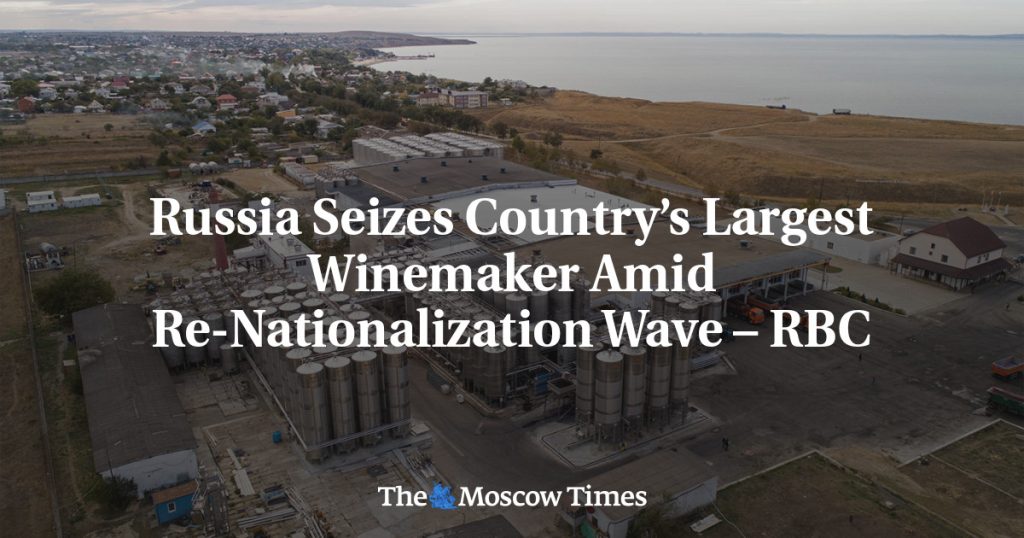Russian authorities have nationalized the country’s largest winemaker, Kuban Vino, which was previously owned by the agricultural holding Ariant. This move comes after one of Ariant’s partners, Yury Antipov, was arrested on charges of undermining national interests by fraudulently transferring assets to unfriendly countries. The decision to transfer Ariant’s assets to the Russian state was made by the Chelyabinsk region’s arbitration court, with the ownership change taking place shortly after.
Founded in the 1990s by Alexander Aristov and Yury Antipov, Ariant owned both steel plants and agricultural assets. Antipov’s steel plants, which were said to work closely with defense contractors, were nationalized earlier this year. The decision to split ownership of the company into metallurgical and agro-industrial holdings in 2020 ultimately led to the seizure of its agricultural assets as part of the fraud case against Antipov. Ariant challenged this ruling, accusing the arbitration court of bias and seeking to overturn the decision through Russia’s Supreme Court.
The Russian government has been actively seizing and nationalizing defense companies since 2023, with a total value of $3.6 billion. This move to command greater control over military production has intensified following Russia’s invasion of Ukraine, with efforts to nationalize key assets in the defense industry. President Vladimir Putin has denied accusations that Russia is re-nationalizing parts of the economy, stating that there is no concerted effort to do so. However, the recent nationalization of Kuban Vino and other companies suggests otherwise, with the government increasing its control over key sectors.
Kuban Vino, which produced 95.5 million bottles of wine in 2023, is one of four nationalized wine and food companies previously owned by Ariant. The decision to nationalize these companies was part of a larger effort to seize control over assets linked to individuals accused of undermining national interests. Antipov’s arrest and subsequent seizure of his steel plants represent a broader crackdown by Russian authorities on individuals and entities involved in activities deemed detrimental to the country’s interests.
The nationalization of Kuban Vino and other companies linked to Ariant comes amid a wave of similar actions targeting assets in various sectors. The Russian government’s efforts to seize control over key industries reflect a desire to assert dominance and increase oversight in light of geopolitical tensions. By increasing state control over strategic assets, Russia aims to safeguard its interests and ensure stability in critical sectors of the economy. However, these actions have raised concerns about the impact on private enterprise and the overall business environment in Russia.
Despite claims by President Putin that there is no coordinated effort to re-nationalize key parts of the economy, the series of nationalizations and seizures of assets suggest otherwise. The government’s actions to take control over defense and other strategic industries demonstrate a proactive stance in response to geopolitical challenges. Moving forward, the implications of these nationalizations on Russia’s economy and business landscape remain to be seen, as the government continues to assert its authority over key sectors.


